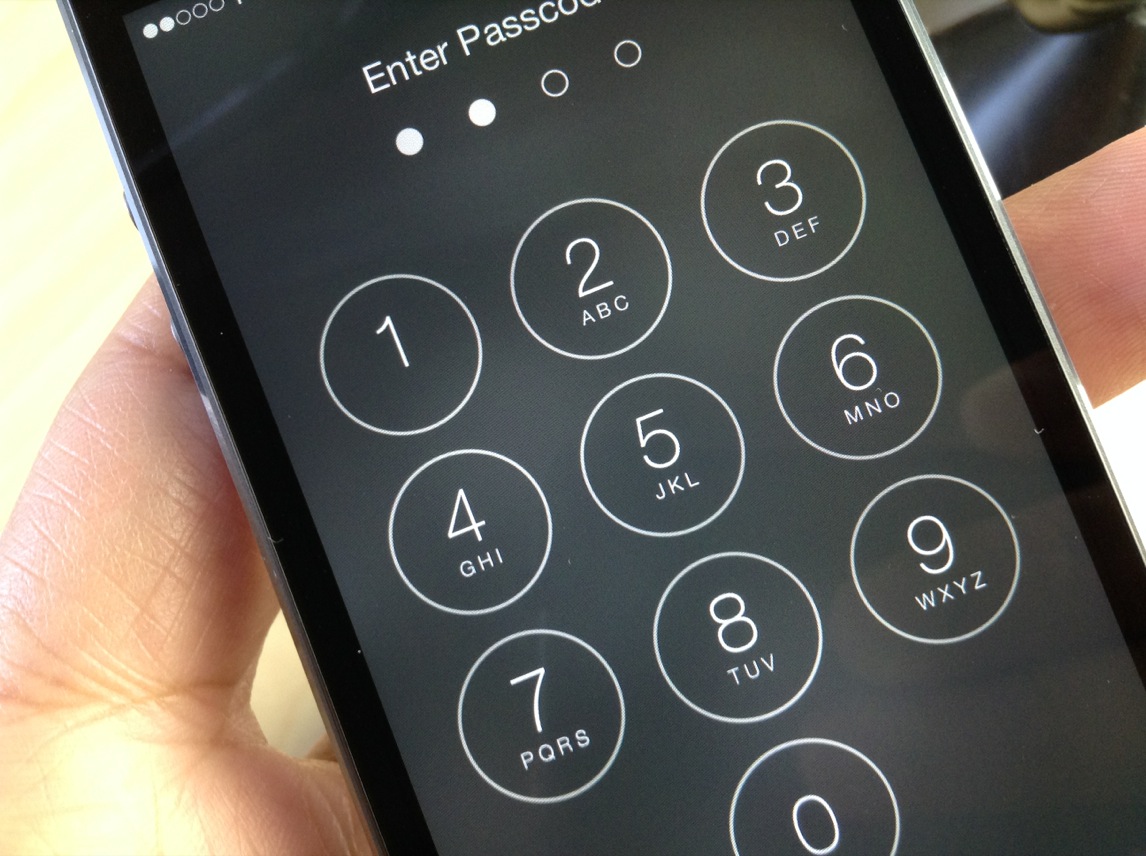Apple is vehemently opposing the FBI’s request to create a backdoor in iOS that would permit authorities to access encrypted data on the iPhone used by one of the San Bernardino shooters. In an open letter to all customers posted on the company’s website, CEO Tim Cook acknowledges that Apple believes that the FBI’s intentions are good and makes note of the fact that his company has done “everything that is both within our power and within the law” to help the authorities.
“But now the U.S. government has asked us for something we simply do not have, and something we consider too dangerous to create,” he wrote. “They have asked us to build a backdoor to the iPhone.”
Brute-force passcode attempts
As a quick backgrounder, the FBI wants Apple to help them bypass or disable the auto-erase function which automatically erases all data on an iPhone after ten failed passcode attempts. They also want Apple to modify the shooter’s iPhone so that brute-force passcode attempts could be performed through the handset’s physical port, as well as over Bluetooth and Wi-Fi.
In removing the delay between passcode attempts, the FBI could use speedy computers to break into the device. iOS enforces a 1-minute delay after five failed passcode attempts, a 5-minute delay after six attempts, a 15-minute delay after 7-8 attempts and a one-hour delay after nine attempts.
A tenth passcode attempt will erase all data on the device, provided a user has enabled the option in Settings → Touch ID & Passcode → Erase Data. Because these delays are built directly into the Secure Enclave hardware, a tiny chip that is walled off from other iPhone components and holds encrypted fingerprint, health and other data, removing it would require modifying iOS to let the FBI guess the password.
That, in and of itself, would constitute a dangerous precedent which might potentially undermine the security and privacy of all Apple users because government agencies could use a special version of iOS that Apple is supposed to provide to unlock anyone’s iPhone and access their data.
“Specifically, the FBI wants us to make a new version of the iPhone operating system, circumventing several important security features, and install it on an iPhone recovered during the investigation,” Cook wrote.
The FBI would, in theory, put the shooter’s iPhone into DFU mode in order to overwrite the firmware with a modified build of iOS that would let it brute-force its way into the device.
“In the wrong hands, this software — which does not exist today — would have the potential to unlock any iPhone in someone’s physical possession.”
The Secure Enclave
Apple’s iOS security guide document states that the Secure Enclave is a coprocessor fabricated directly in the A7 or later A-series processor. “It utilizes its own secure boot and personalized software update separate from the application processor,” explains the document.
The Secure Enclave provides all cryptographic operations for data protection key management and maintains the integrity of data protection even if the kernel has been compromised.
It uses encrypted memory and includes a hardware random number generator and its own microkernel. Communication between the Secure Enclave and the main application processor is isolated from the rest of the system to increase security.
In addition, each Secure Enclave is provisioned during fabrication with its own unique ID which is not accessible to other parts of the system and is not known to Apple.
The Secure Enclave is also responsible for processing fingerprint data from the Touch ID sensor. The main processor cannot read encrypted fingerprint data. Communication between the Secure Enclave and the Touch ID sensor is also protected by provisioning the Touch ID sensor during fabrication with its own unique ID.
Security as a tentpole feature
Apple has long maintained that it’s impossible for it to extract data from a passcode-locked iPhone running iOS 8 or later due to hardware-based encryption and the fact that it does not posses the encryption keys to make the data readable.
Cook’s extremely strongly worded letter went on to call the demand “chilling,” saying that building a version of iOS that bypasses security in this way “would undeniably create a backdoor.”
“And while the government may argue that its use would be limited to this case, there is no way to guarantee such control,” he added.
The Republican presidential front-runner Donald Trump blasted Apple today for not unlocking the shooter’s iPhone. “To think that Apple won’t allow us to get into her cellphone? Who do they think they are? No, we have to open it,“ he said during an interview on Fox & Friends.
“I agree 100 percent with the courts. In that case, we should open it up,” he said. “I think security overall — we have to open it up. And we have to use our heads. We have to use common sense. Somebody the other day called me a ‘common-sense conservative.’ We have to use common sense. Our country has so many problems.”
What’s your position on this topic? Should Apple create a special version of iOS to let authorities break into the shooter’s iPhone? What would you do if your were standing in Apple’s shoes?
Source: Apple
